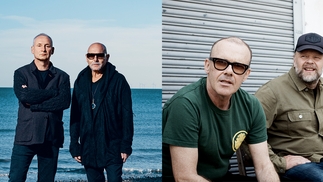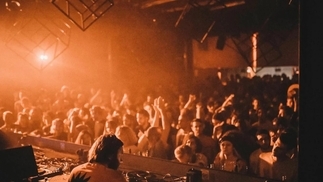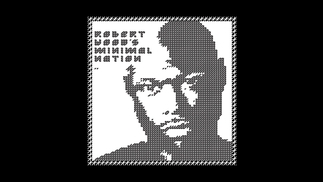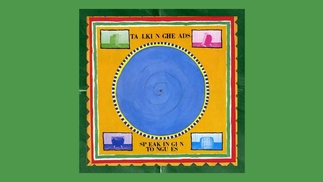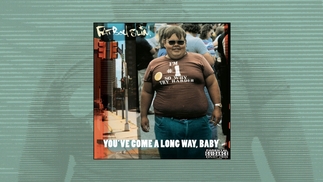Solid Gold: How Leftfield's 'Leftism' united electronic music in post-rave Britain
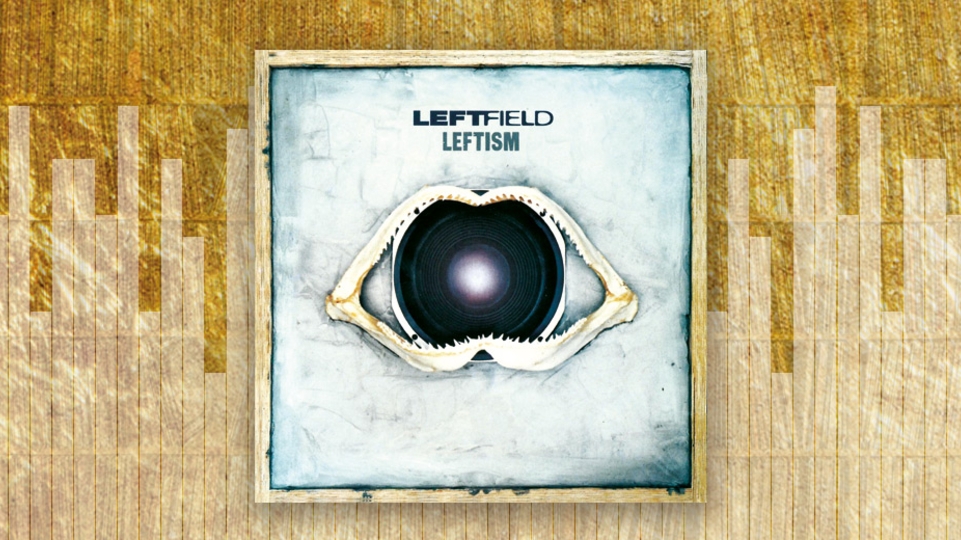
DJ Mag's Solid Gold series revisits and examines the ongoing significance and influence of electronic albums throughout history. In this edition, Ben Cardew discusses how Leftfield's seminal LP 'Leftism' united the electronic music community in post-rave Britain and beyond...
Bastardisation has long been at the heart of the British musical soul. The Beatles had it, tying up US R&B into wonderful new forms in the 1960s; David Bowie had it, subsuming everything from disco to drones into his individualistic musical world; and in the 90s Leftfield had it, their mighty debut album ‘Leftism’ uniting the musical melting pot of post-rave Britain under the steady thump of the house beat. “Everything I’d ever been into came together and we ploughed it into ‘Leftism’,” Paul Daley, half of the duo alongside Neil Barnes, told The Guardian. “Suddenly, you could re-examine the whole history of pop – admittedly on drugs.”
The whole history of pop might be pushing it slightly. But a quick look at the co-writes and features on ‘Leftism’ shows how far Leftfield went in search of inspiration for their debut album: Jamaican reggae vocalist Earl Sixteen sings on album opener ‘Release The Pressure’; ‘Afro Left’ features Kevin Hayes on the berimbau; ‘Song of Life’ samples Bulgarian ethno singer Yanka Rupkina; and Toni Halliday, the singer in goth shoegazers Curve, lends her icy vocal inflections to ‘Original’.
This eclecticism placed ‘Leftism’ in the multifarious lineage of rave. But behind this lay the guiding hand of another British musical mainstay: punk. Both Barnes and Daley started out in punk bands and ‘Leftism’ was, in many way, a continuation of their work. But ‘Leftism’ isn’t punk in the reductionist sense of buzzsaw guitars, cheap melodies and postcard Mohicans; ‘Leftism’ is punk in the DIY, try-everything spirit of The Clash. If ‘Leftism’ has a punk equivalent, it is The Clash’s ‘London Calling’, the moment when the band exploded out to new musical genres, using punk as a guiding force rather than musical straightjacket.
Two incidents confirmed ‘Leftism’’s place in the passing of the punk baton. Daley told The Guardian that The Clash’s Joe Strummer came into the studio one day when he and Barnes were recording ‘Leftism’ and was so impressed by ‘Inspection (Check One)’ that he asked him to play it again, the two eventually becoming friends. More obviously ‘Open Up’ features an incendiary guest vocal from John Lydon, providing a late career highlight for the former Sex Pistol and a top 20 hit for Leftfield. As brilliant as Lydon’s vocal was, though, Leftfield were not to be upstaged on their own song, their thunderous production matching Lydon’s contribution for vim, vigour and pus, the distorted trill of a 303 bouncing off a furious breakbeat in a show of electronic strength.
Of course, it would be untrue to say that house and techno had been averse to mixing it up with different musical genres before ‘Leftfism' came along. Some of the very first house records incorporated Latin influences, while Basic Channel had defined dub techno back in the early 90s. But Latin music was very much a US thing, while Basic Channel’s use of dub resulted in deep, underground classics that felt like they might disintegrate if taken out of a Berlin club basement.
‘Leftism’ was different. It was unashamedly big and British, for a start, its rampant electronic catholicism rubbing up against a vast, poppy sound. Almost immediately, ‘Leftism’ became a mainstream hit, transporting Leftfield into the realms of stadium techno alongside The Prodigy and The Chemical Brothers.

There is a confidence to the album, too, which seemed to grab you by the ears and demand that you listened. This brashness sat well with the era in which ‘Leftism’ was released. The 1990s were a good time to be British, as rave’s optimism fed into political change and the Conservative Party’s decrepit leadership finally breathed its last in May 1997. You can feel this optimism surge through ‘Leftism’, an album that seemed to know instinctively you were going to like it and wouldn’t budge an inch even if you didn’t. ‘Leftism’ felt like rave’s burly big brother. This was rave that had grown up, bought a solid pair of shoes and a warm jacket but still liked to party; rave you could listen to while washing the dishes or in the car with your mum. ‘Leftism’ was a hit in middle-class dinner parties, dingy student digs and big house clubs, at home in all three without every really belonging to anyone.
Key to this are ‘Leftism’’s hooks. The album is shot through with massive, all-encompassing hooks that stay in your head for days, from ‘Open Up’s’ coruscating chorus to ‘Afro Left’s’ addictive berimbau line. And the hooks could come from everywhere - even the drum fills are catchy - making ‘Leftism’ one of dance music’s most memorable albums. Even now, there are 90’s ravers who can be reduced to a Proust-ian memory hole by the opening 303 riff on ‘Song of Life’ alone.
The album sounded incredibly big too. Leftfield were - and indeed still are - an incredible live act, prone to making plaster fall from venue walls and they transformed this energy onto vinyl. The drums on ‘Song of Life’ sound as if they are hewn out of mountain, a vast granite slab of echoing noise, while bass rumble on ‘Inspection (Check One)’ is menacing enough even on computer speakers to make you consider a visit to the ENT.
Leftfield’s career would falter after ‘Leftism’. They made one more album as a duo, 1999’s ‘Rhythm and Stealth’, before splitting in 2002. Neil Barnes resurrected the group in 2010 for live dates and a third album, touring ‘Leftism’ again when it was reissued in 2017. It is perhaps for this that ‘Leftism’’s reputation remains complicated. Leftfield never really built upon ‘Leftism’’s success and some of the album’s tracks - notably the straight-up pump of ‘Black Flute’ and the wandering ambience of ‘Melt’ - sound a little dated today. It didn’t help, either, that the musical genre Leftfield would help birth, progressive house, soon turned into a backward-looking electronic shit show.
That’s no fault of Leftfield, a band who embraced the ideas of musical progression, eclecticism and shameless borrowing, when others in the house world were stuck to their disco guns. To listen to ‘Leftism’ is to be transported back to 90s Britain, warts and all. But the album is so much more than mere nostalgia: ‘Leftism’ is a big beautiful bastard of 90s’ Britannia, a reminder of times when house was progressive and Britain emphatically open for all.
